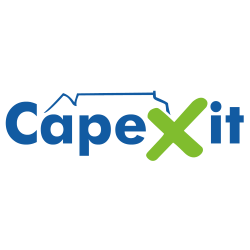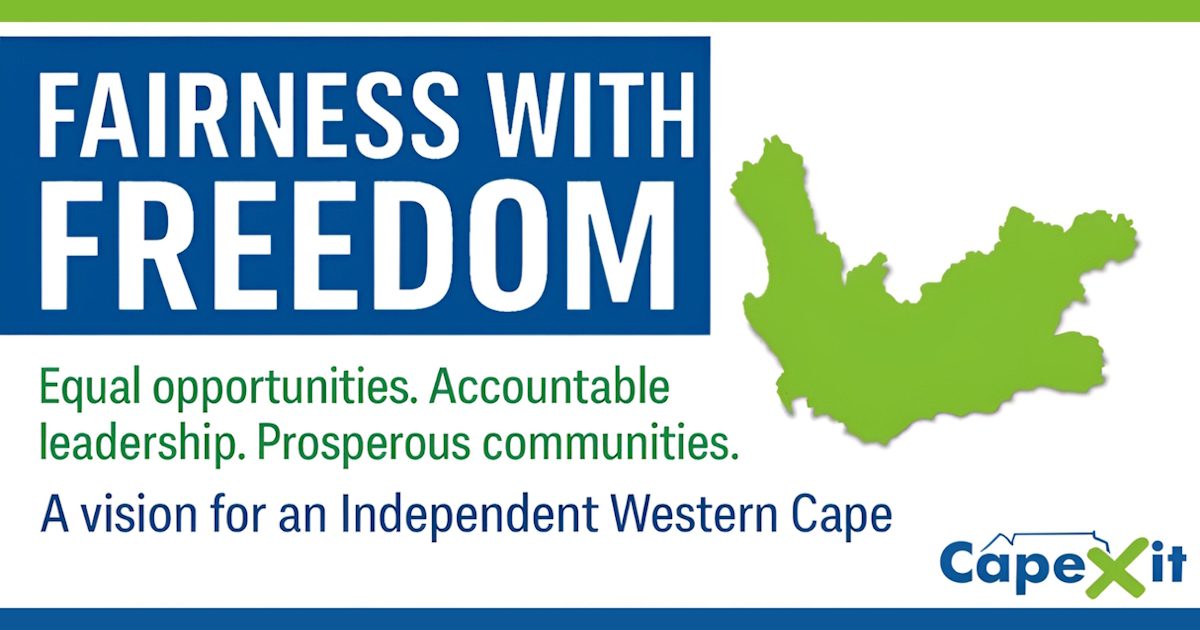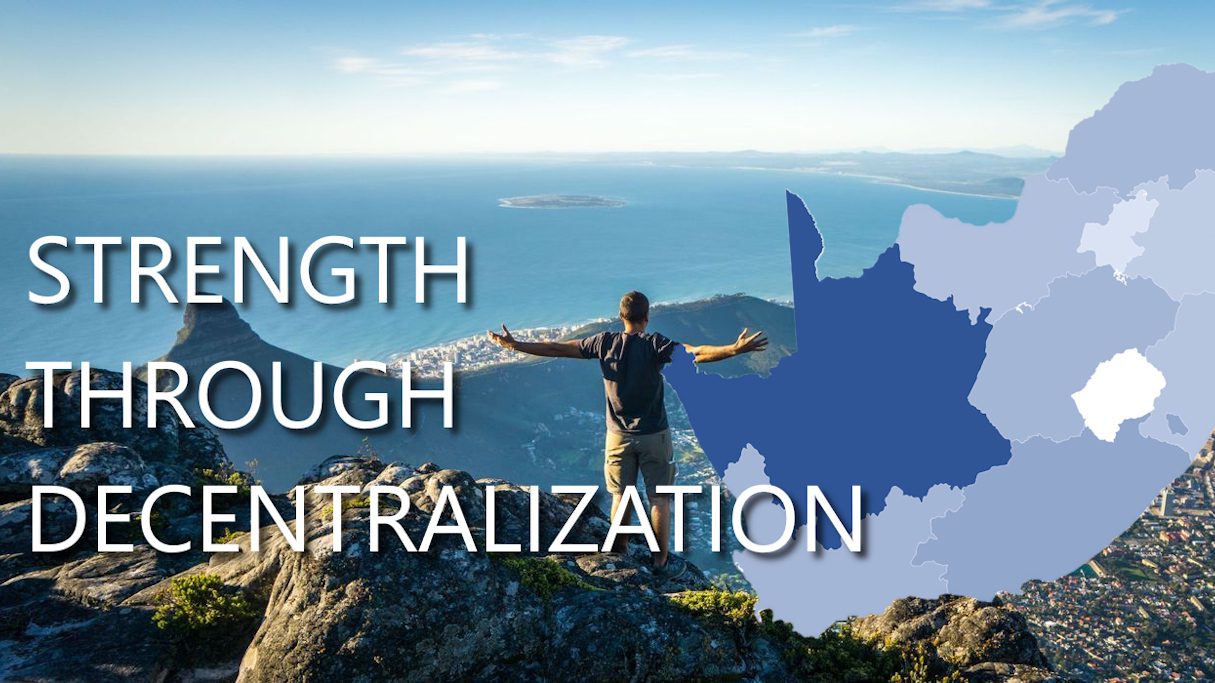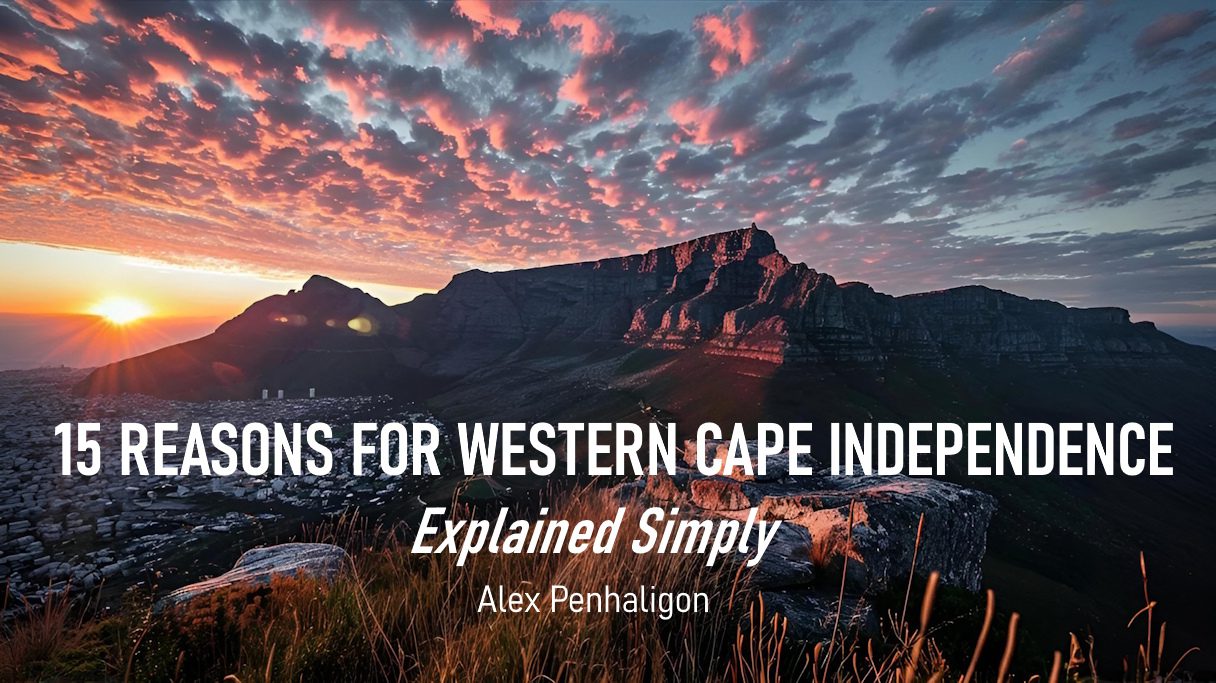When people hear the term “canton system,” their first thought is often of wealthy areas walling themselves off from poorer neighbours. In reality, the opposite can be true—if designed with fairness and transparency at its core. A canton-style model of governance can allow every community in an independent Western Cape to take ownership of its own destiny while guaranteeing that no one is left behind.
Today, the Western Cape contributes far more to the national treasury than it receives in return. Yet, despite this imbalance, many of its poorest communities still struggle with failing schools, clinics, and infrastructure. Centralised redistribution has failed because it is captured by bureaucracy and politics rather than outcomes. A new approach is possible—one that keeps redistribution, but fixes how it works.
The principle: equity through accountability
The Equalization and Standards Act, as proposed for an independent Western Cape, is built on two simple ideas:
- Decisions should be made as close as possible to the people they affect.
- Redistribution must be fair, transparent, and performance-based—not political.
Under this model, each local authority, or canton, controls most of its own tax revenue to deliver local services such as education, policing, and healthcare. However, a fixed share of these revenues—say 20 to 25 percent—flows into a central Equalization Fund. From there, funds are distributed to poorer areas through a clear and published formula that combines need and effort.
The goal is not to make every area equally rich, but to ensure that every citizen, no matter where they live, enjoys the same minimum standard of essential services—safe schools, working clinics, clean water, and reliable policing.
A transparent formula, not political discretion
In the current national system, money flows through opaque budget channels, filtered through several layers of government. Little of it ever reaches the people it is meant to help. The new Equalization Fund turns this on its head.
The formula is simple:
Grant = (Need Gap × 75%) + (Effort Bonus × 5%)
“Need” accounts for factors like population, poverty, and infrastructure gaps. “Effort” rewards good governance—how effectively local taxes are collected and spent, and how efficiently services are delivered. The remaining 20% gap is intentional: it preserves the incentive for every community to grow its own economy and tax base.
In practice, this means a high-income area such as Constantia would still contribute more to the Equalization Fund, but would also benefit from faster approvals, responsive policing, and the ability to set its own priorities. Meanwhile, a lower-income area such as Khayelitsha would receive a predictable, rules-based transfer that guarantees service equality—not charity, but fair opportunity.
Minimum standards for all
To make equity real, the province would set service floors—objective, measurable targets that every canton must meet. Examples include:
- One teacher for every 33 learners in primary schools,
- A functioning clinic within 30 minutes of every household,
- 24/7 potable water and basic sanitation for 95% of residents, and
- Minimum police response times by area type.
If a canton repeatedly fails to meet these floors, the province intervenes temporarily with technical support or management assistance. The goal is to fix, not punish, local administrations.
Transparency and citizen power
The Equalization and Standards system only works if citizens can see where every rand goes. Each canton would publish quarterly dashboards showing tax collections, spending, and performance outcomes. Residents can trigger oversight actions if targets are missed twice in a row—effectively empowering communities to hold their own leaders accountable.
Instead of appealing to distant officials in Pretoria, citizens would see results directly in their schools, clinics, and streets. This is democracy made visible.
From dependence to self-reliance
The Western Cape already demonstrates how good governance and economic stability attract investment and growth. But progress remains limited under a central system that punishes efficiency and rewards failure. By combining local control with transparent redistribution, an independent Western Cape could move from being South Africa’s reluctant donor to being Africa’s model of equitable federalism.
This is not about “rich areas keeping their money.” It is about replacing waste and corruption with a culture of accountability and shared prosperity. Every community—whether Constantia or Khayelitsha—would be responsible for its own outcomes, but supported by a transparent safety net that ensures fairness.
A better way forward
The proposed Equalization and Standards Act shows that independence does not have to mean division. On the contrary, it can build unity through honesty. When the rules are clear and everyone can see where the money goes, trust grows—and with it, the shared belief that progress is possible for all.
The vision is simple:
Equal opportunities. Accountable leadership. Prosperous communities.
That is how the Western Cape can become not only independent, but truly free.
Dr. Joan Swart has a PsyD Forensic Psychology, an MBA and a Masters in Military Studies. She is a director of CapeXit NPO.




